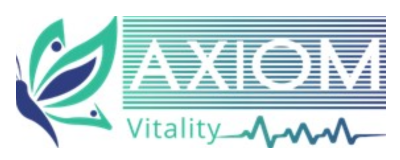Skills and Talents for Hospital Administrators

Hospital administrators play a crucial role in managing the operations of healthcare facilities. To excel in this role, administrators should possess a diverse set of skills and talents that contribute to effective leadership, efficient operations, and the delivery of high-quality patient care. Here are seven must-have skills and talents for hospital administrators:
- Leadership and Management Skills:
- Effective Decision-Making: Hospital administrators must make critical decisions that impact the organization’s overall performance. Strong decision-making skills, including the ability to analyze complex situations and weigh various factors, are essential.
- Strategic Planning: The ability to develop and implement long-term strategic plans is crucial. Administrators should be forward-thinking, identifying opportunities for growth and improvement while considering the evolving landscape of healthcare.
- Communication and Interpersonal Skills:
- Effective Communication: Administrators need to communicate clearly and concisely with diverse stakeholders, including healthcare professionals, staff, patients, and external partners. This includes written and verbal communication skills.
- Interpersonal Skills: Building positive relationships and fostering teamwork among staff is essential. Administrators should be adept at motivating and inspiring others, resolving conflicts, and promoting a positive workplace culture.
- Financial Management and Budgeting:
- Financial Acumen: Hospital administrators should have a strong understanding of financial management principles, including budgeting, revenue cycle management, and financial analysis. This skill is critical for maintaining the financial health of the healthcare facility.
- Healthcare Regulation and Compliance Knowledge:
- Regulatory Compliance: In-depth knowledge of healthcare regulations, including those related to patient care, billing, and safety, is crucial. Administrators must ensure that the hospital complies with all applicable laws and standards.
- Quality Improvement and Patient Safety:
- Quality Management: Administrators should be committed to ensuring the delivery of high-quality patient care. This includes implementing and overseeing quality improvement initiatives, monitoring patient outcomes, and promoting a culture of continuous improvement.
- Patient Safety: Hospital administrators must prioritize patient safety by implementing protocols to minimize medical errors, ensuring compliance with safety standards, and addressing any issues that may compromise patient well-being.
- Technology Integration and Health Informatics:
- Technology Proficiency: Administrators should be comfortable with healthcare information technology, including electronic health records (EHRs), data analytics, and other digital tools. The ability to leverage technology for improved patient care and operational efficiency is increasingly important.
- Crisis Management and Adaptability:
- Crisis Response: Administrators must be prepared to handle crises and emergencies effectively. This includes developing and implementing crisis management plans, ensuring staff readiness, and adapting quickly to unexpected challenges.
- Adaptability: The healthcare landscape is dynamic, and administrators need to adapt to changes in regulations, technology, and patient needs. Flexibility and the ability to navigate uncertainty are key.
These skills and talents collectively contribute to the success of hospital administrators in overseeing healthcare facilities. A well-rounded administrator who possesses these competencies can lead the organization in providing quality care, maintaining financial stability, and adapting to the evolving healthcare environment.
